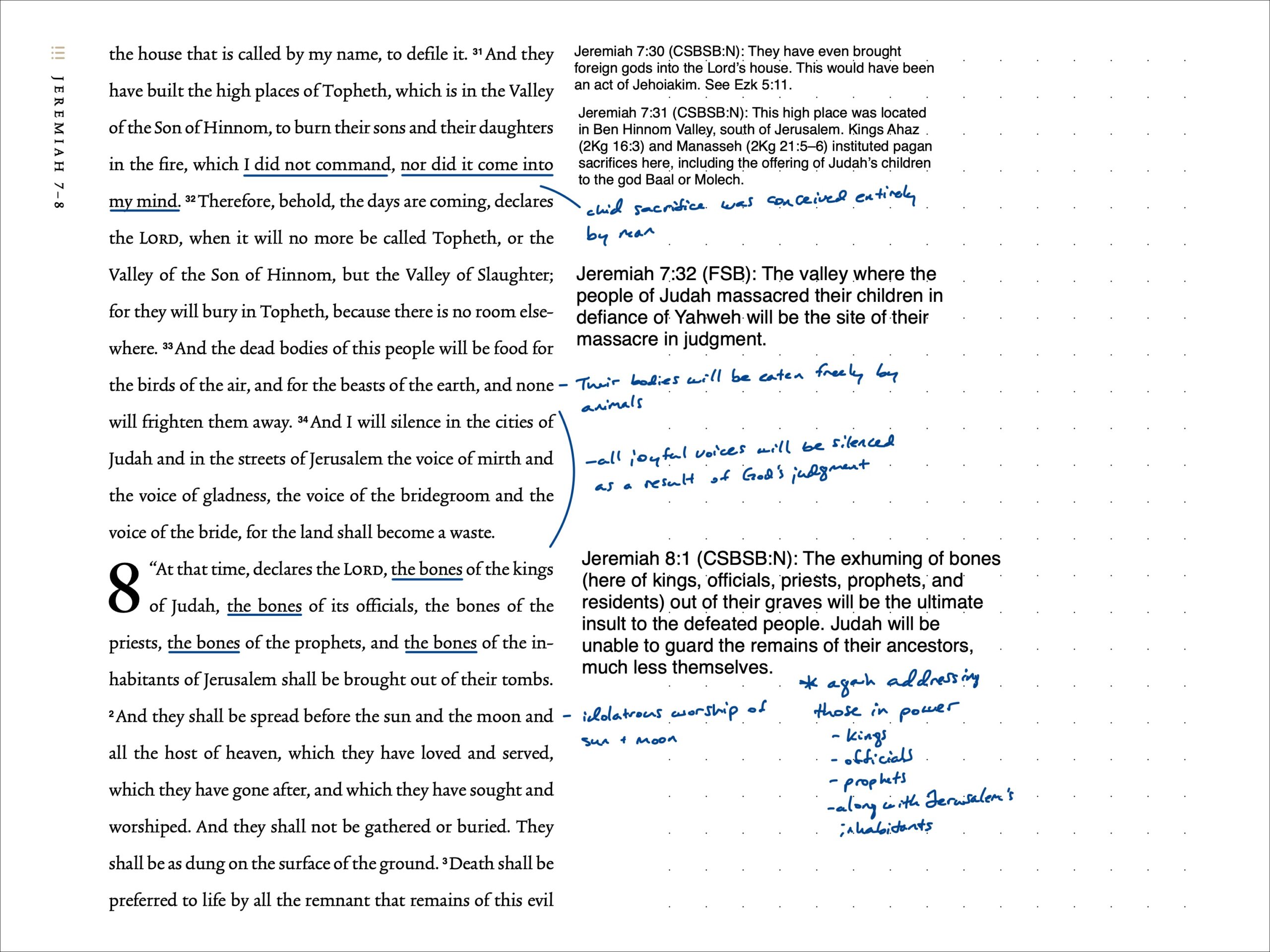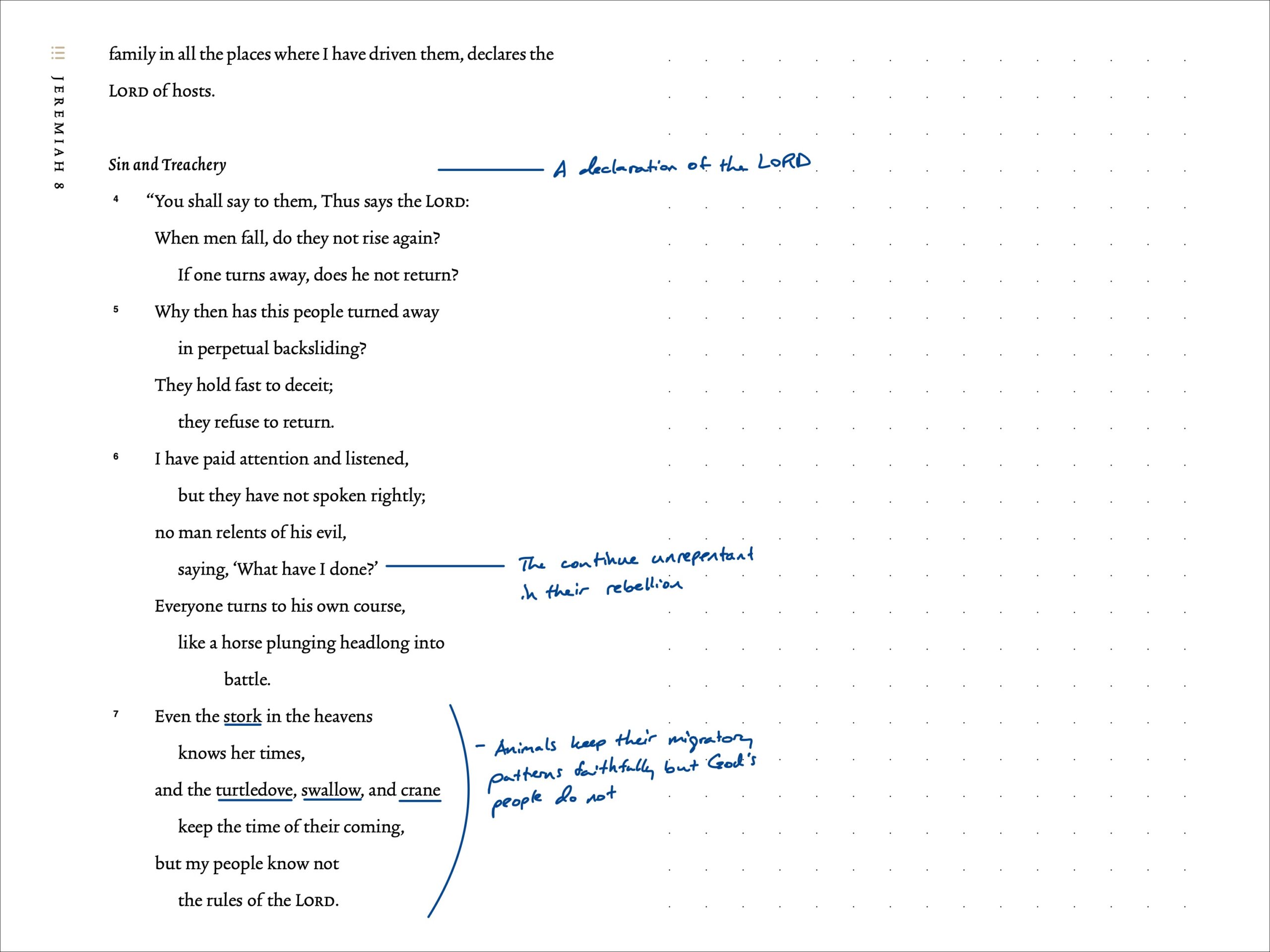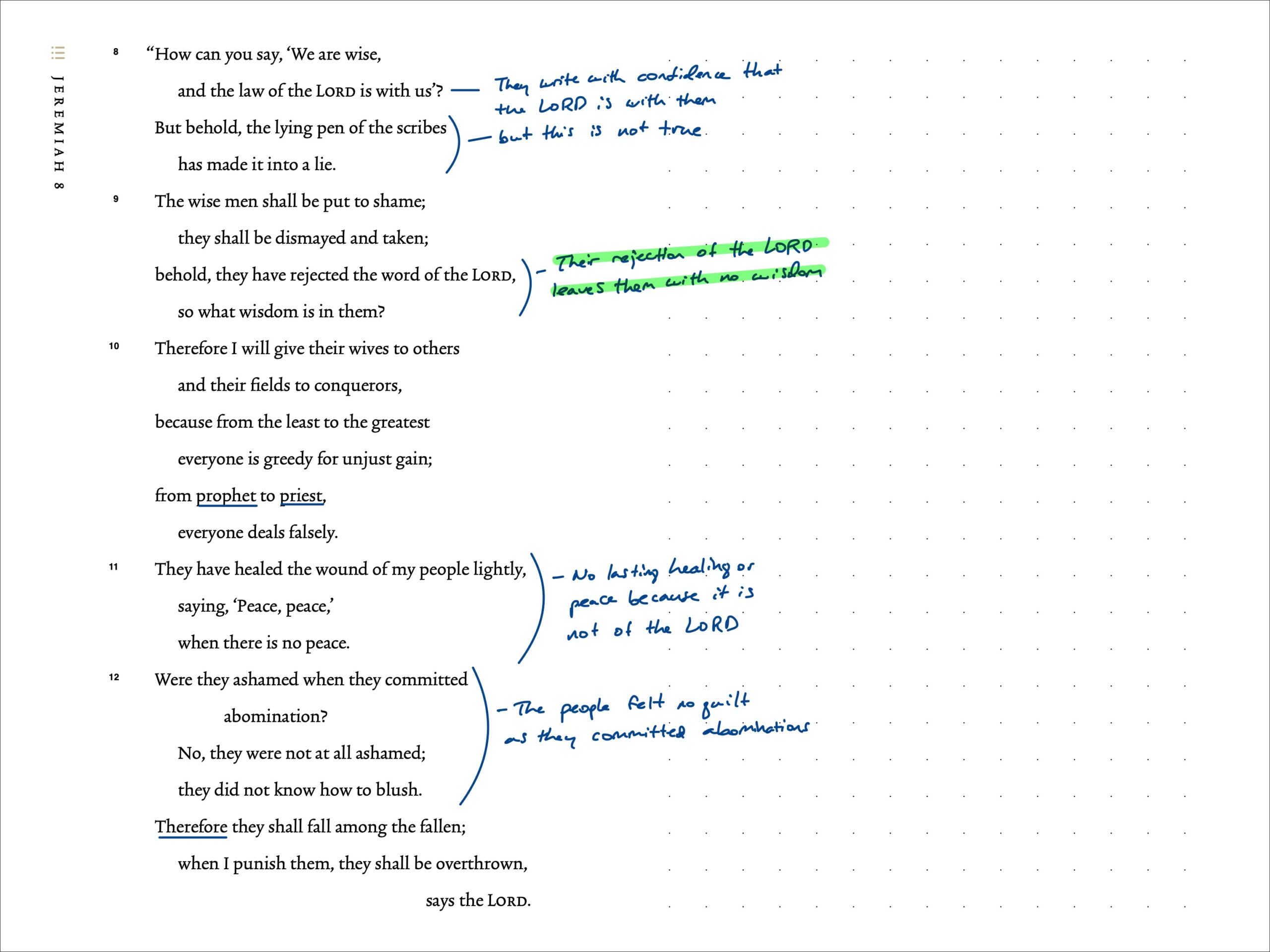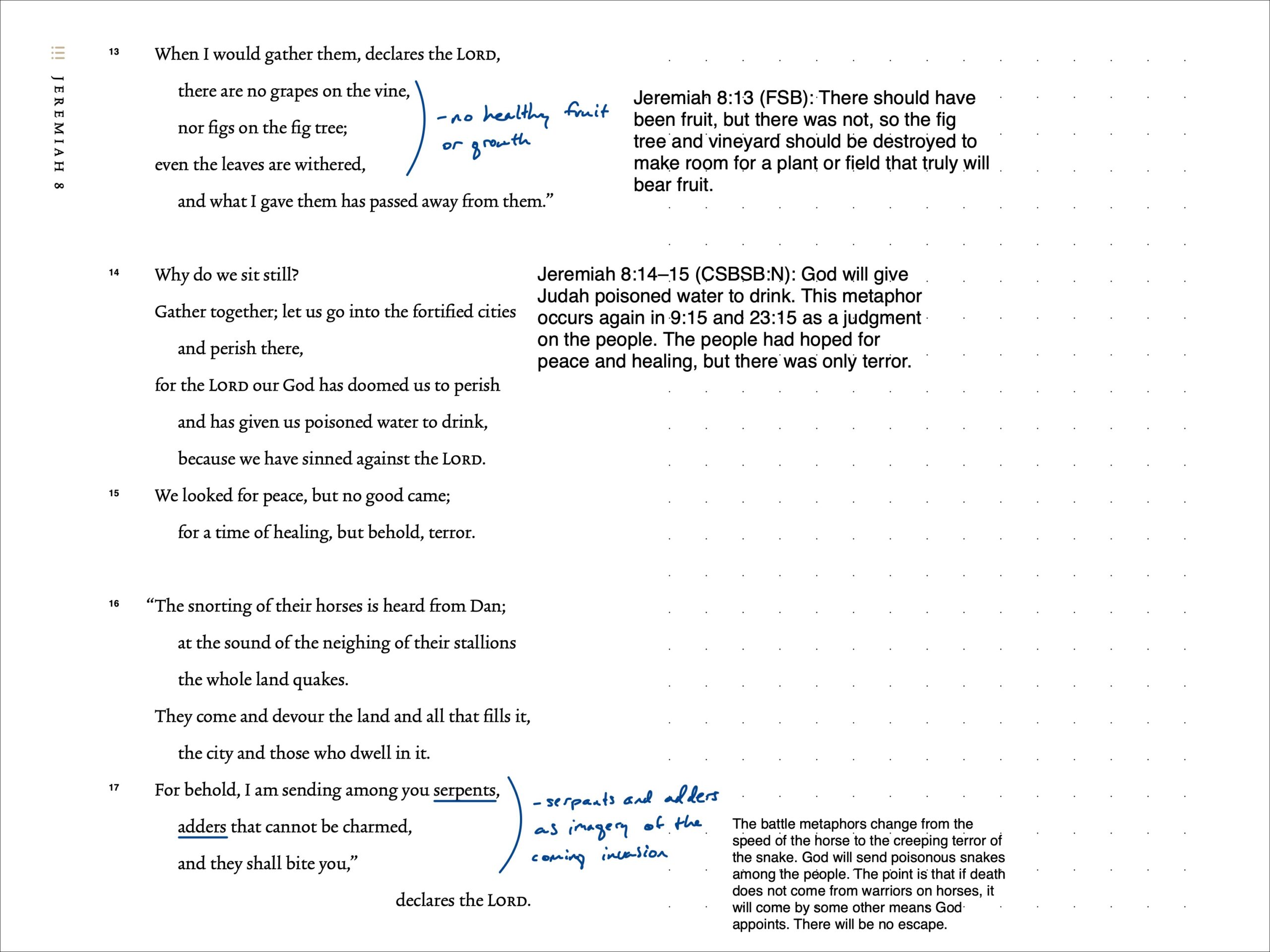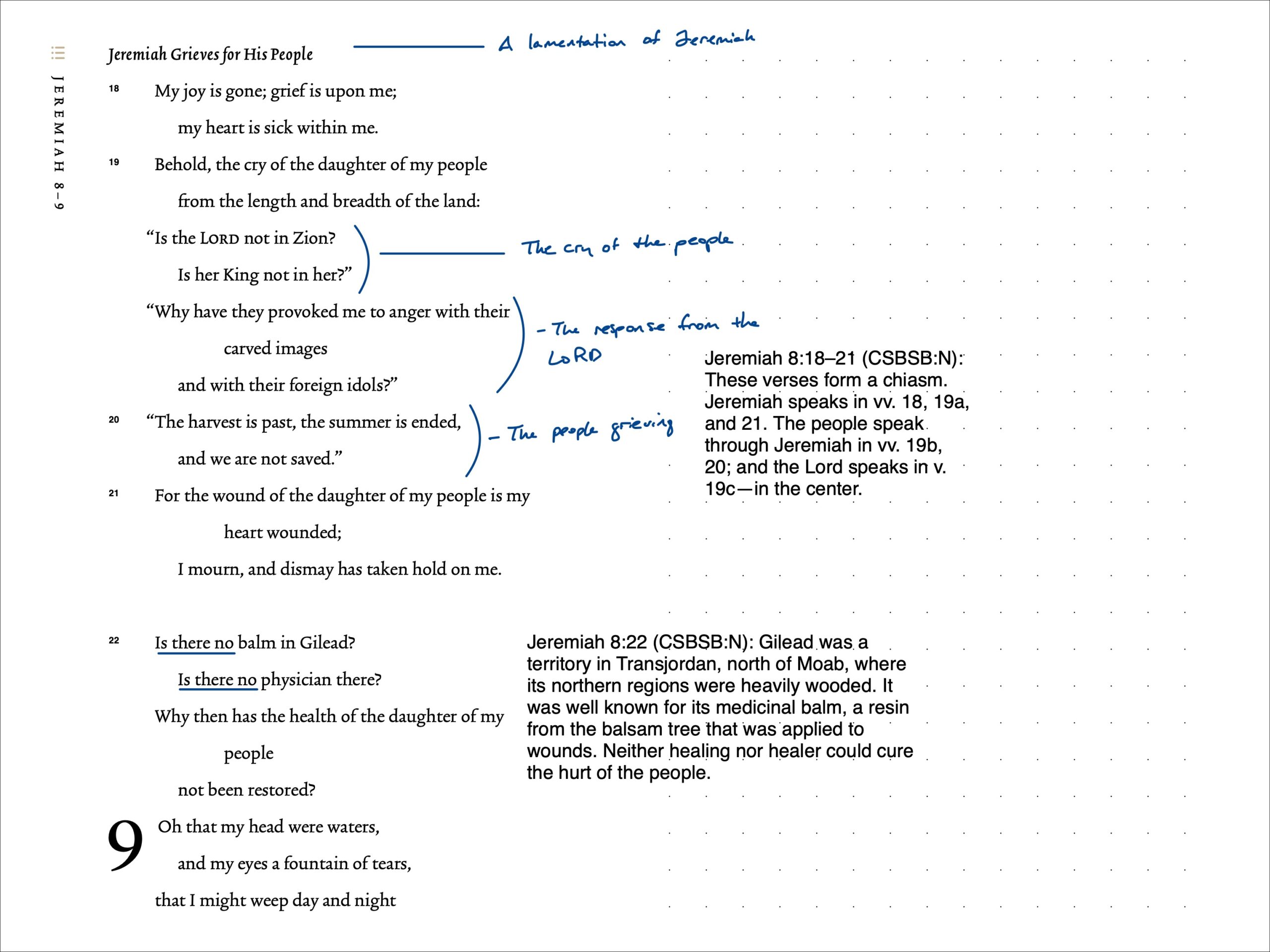| Date | Version | Reading Plan |
|---|---|---|
| @June 30, 2023 | ESV (2016) | ESV Prophets Plan 2023 |
Pericopes
- The Valley of Slaugher (cont.)
- Sin and treachery
- Jeremiah grieves for his people
Notes
The chapter opens with a declaration that the bones of the kings, priests, prophets and the inhabitants of Jerusalem will be exhumed. It will be the ultimate insult to the people as they are unable to guard the remains of their ancestors, much less themselves.
Jer. 8:4-13 is a discourse of God, asking many questions of his people and why they continue in their wickedness. There is persistent, unrepentant rebellion among them and no one turns to ask, “What have I done?” (Jer. 8:6). Their unfaithfulness is contrasted against the steadiness of animals who are able to maintain their migratory patterns. (Jer. 8:7).
In Jer. 8:9, the rhetorical question is asked, “they have rejected the LORD, so what wisdom is in them?”. This demonstrates the tight coupling of faithfulness to the LORD with true wisdom and that, apart from Him, it cannot be found. This is a major theme that runs throughout Scripture (exs. Job. 28:8, Ps. 111:10, Prov. 9:10, Prov. 1:7)
Jer. 8:14 shows how God gave Judah poisoned water to drink. This metaphor occurs again in Jer. 9:15 and Jer. 23:15 as a judgment on the people. Where the people hoped for peace and healing, there was only terror. This dread will come in the form of Babylonian invasion which is symbolically represented in Jer. 8:17 as “serpents” and “adders”.
The final section of the chapter (Jer. 8:18-22) is a grieving lamentation of Jeremiah. In Jer. 8:18-21, there is a conversational chiasm between the people and God; the people ask if the Lord is in Zion (Jer. 8:19) → God responds by asking why the provoked Him to anger with their carved images (Jer. 8:19) → the people grieve that the harvest is past and they are not saved (Jer. 8:20).
The final verse (Jer. 22) is Jeremiah asking, “Is there no balm in Gilead?” and “Is there no physician there?”. Gilead was well known for its medicinal balm, a resin from the balsam tree that was applied to wounds. Asking the question elucidates how there would be neither healing nor healer to cure the hurt of the people.
Application
So much of the Father’s heart for His people is revealed in this chapter. Many times, He asks why His people why they had turned away (Jer. 8:5), held fast to deceit (Jer. 8:5) and not spoken rightly (Jer. 8:6). These are not questions of a distant God, aloof to His creation. They are questions of deep care and concern for those who bear His image.
It is critical to be oft reminded of God’s intimate presence. He is Immanuel, God with us. This compassion went as far as taking on flesh, walking among us, experiencing our pain and feeling our sorrows. Through His condescension, He made Himself both approachable and an acceptable sacrifice for the sins of humanity. We serve a God who is close, involved and continuing to make intercession on our behalf.
Scripture Journal Notes
Commentaries & Resources
- ESV Study Bible. (Wheaton, IL: Crossway, 2008)
- Faithlife Study Bible (Lexham Press, 2016)
- Believer’s Bible Commentary (Thomas Nelson, 2016)
- CSB Study Bible Notes (Holman Bible Publishers, 2017)
- Matthew Henry’s Commentary on the Whole Bible (Guardian Press, 1976)
- The Bible: A Reader’s Guide (Sterling Publishing, 2011)
- The Infographic Bible (Zondervan, 2018)
- ESV Digital Scripture Journal (Crossway, 2019)
